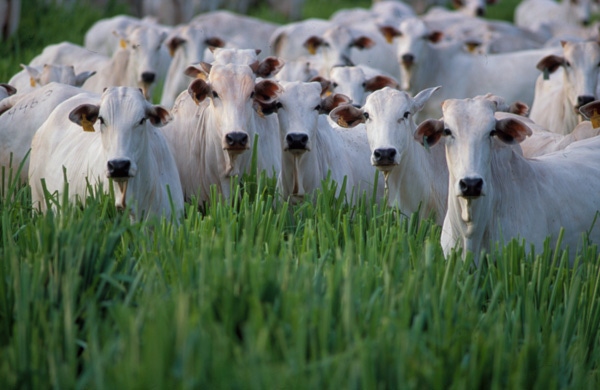NCBA said it supports science-based decision but concerned on animal health risks.

The United States Department of Agriculture (USDA) Food Safety and Inspection Service (FSIS) announced plans late Friday to lift a ban on imported beef from Brazil that has been in effect since June 2017.
A Food Safety and Inspection Service (FSIS) spokesperson explained that FSIS recently conducted a targeted, on-site equivalence verification audit of Brazil’s raw intact beef products to verify the implementation of corrective actions in response to several audits and technical discussions since FSIS suspended the export of raw intact beef from Brazil in 2017.
“FSIS confirmed that Brazil has implemented necessary corrective actions and has determined that Brazil’s food safety inspection system governing raw intact beef is equivalent to that of the U.S. Therefore, FSIS is lifting the suspension to export raw beef products to the U.S., effective February 21, 2020,” FSIS stated.
Kent Bacus, National Cattlemen’s Beef Association (NCBA) senior director international trade and market access, said NCBA strongly supports science-based trade, but also expressed serious concerns about the re-entry of Brazilian beef to the U.S. market.
“NCBA has frequently questioned the lack of scientific evidence that was used to justify Brazil’s initial access to the U.S. market in 2016, and unfortunately, we were not surprised when Brazil forfeited its beef access to the U.S. in 2017 due to numerous food safety violations,” Bacus said.
He offered praised for Secretary of Agriculture Sonny Perdue for standing up to science-based trade and holding Brazil accountable for their numerous violations by suspending Brazil’s access and subjecting Brazil to undergo a thorough science-based inspection and audit process. “It is evident that USDA believes that Brazil has addressed the concerns raised in the audit process, and steps will soon be taken to restore Brazil’s access to the United States,” Bacus aid.
FSIS said raw beef products from Brazil will be subject to re-inspection at U.S. points of entry by FSIS import inspectors as is required with meat, poultry, and processed egg products from other countries.
“Given Brazil’s history of foot-and-mouth disease (FMD) and its track record of repeated food safety violations at ports-of-entry, you can rest assured that NCBA will keep an eagle eye focus on all developments with Brazil and we expect nothing less than the highest level of scrutiny from USDA and customs officials,” Bacus said. “Should Brazil continue to have food safety or animal health issues, we expect the U.S. government, including Capitol Hill, to take all necessary and immediate action to protect U.S. consumers and U.S. beef producers.”
While NCBA shared concerns due to animal health reasons, Food & Water Watch offered food safety concerns in wake of the announcement. Tony Corbo, senior government affairs representative, said USDA made the right call to enact a ban on imported Brazilian beef in 2017.
“In December 2019, Brazilian microbiologists released a study of exported beef from Brazil's largest beef producing state that found almost 70% of sampled beef plants to contain strains of Listeria bacteria,” Corbo said in a statement. “In December 2017, Food & Water Watch filed a petition with USDA to revoke Brazil's equivalency status as we documented serious food safety violations going back to 2005. Nothing has changed. The Brazilian meat inspection system is still out-of-order and should be treated as such.”
About the Author(s)
You May Also Like




.png?width=300&auto=webp&quality=80&disable=upscale)
